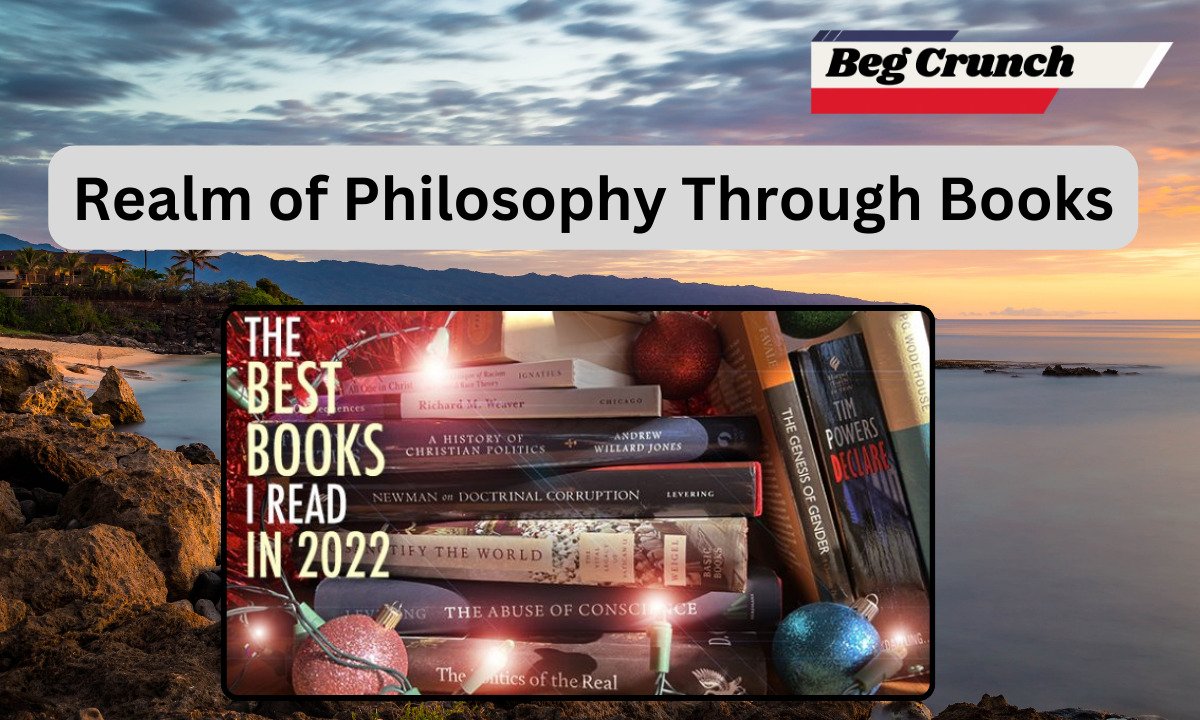Nurturing Intellectual Curiosity: Exploring the Realm of Philosophy Through Books
In the quest for understanding life’s profound questions, delving into the world of philosophy is both enlightening and intellectually invigorating. Philosophical concepts have shaped human thought for centuries, and books offer an immersive gateway into this world of contemplation. Whether you’re a seasoned philosopher or a curious beginner, the following list of books about philosophy will broaden your horizons and stimulate your mind.
Table of Contents
- Introduction
- Embarking on Philosophical Journeys: Books About Philosophy
- Meditations by Marcus Aurelius
- Sophie’s World by Jostein Gaarder
- Thus Spoke Zarathustra by Friedrich Nietzsche
- Exploring Philosophical Niches Through Literature
- Robert M. Pirsig’s Zen and the Art of Motorcycle Maintenance
- The Republic by Plato
- The Myth of Sisyphus by Albert Camus
- Unraveling Complex Ideas: Philosophical Non-Fiction Picks
- Being and Time by Martin Heidegger
- Critique of Pure Reason by Immanuel Kant
- FAQs About Books and Philosophy
- What are some beginner-friendly books for those new to philosophy?
- Can fiction books effectively convey philosophical concepts?
- Are there books that provide an overview of various philosophical schools of thought?
- Conclusion
Embarking on Philosophical Journeys: Books About Philosophy
- “Meditations” by Marcus Aurelius:
Within the pages of “Meditations,” the Roman Emperor Marcus Aurelius immerses readers in a profound odyssey of introspection, exploring the very essence of life, virtue, and the human condition. Composed as a series of private notes to himself, this work traverses the corridors of Stoic philosophy, encapsulating Aurelius’ personal journey towards wisdom and ethical excellence. Through his contemplative observations, he gifts readers a timeless guide that navigates the tumultuous seas of existence with unwavering equanimity.
Aurelius’ reflections transcend the historical context in which they were penned, resonating across epochs as universal truths. His dissections of selfhood, the impermanence of life, and the art of maintaining inner tranquility stand as philosophical pillars, offering solace and guidance to contemporary seekers of meaning. As the world whirls in perpetual motion, “Meditations” becomes a lighthouse, illuminating the path to virtue amidst the storms of modern life.
- “Sophie’s World” by Jostein Gaarder:
In a captivating symphony of fiction and philosophy, “Sophie’s World” introduces readers to the universe of human thought, as seen through the eyes of Sophie, a young protagonist. Jostein Gaarder’s narrative is a tapestry that artfully weaves the history of philosophical ideas, transporting readers through the corridors of ancient Greece, the Enlightenment, and beyond.
This literary odyssey offers more than a mere recitation of philosophical doctrines; it immerses readers in the crucible of intellectual evolution. As Sophie encounters Plato, Descartes, and Kant, their ideas cease to be abstract concepts and transform into living entities that breathe life into the narrative. Gaarder’s masterstroke lies in his ability to distill complex ideas into digestible anecdotes, facilitating an experiential journey through the evolution of human thinking.
- “Thus Spoke Zarathustra” by Friedrich Nietzsche:
In “Thus Spoke Zarathustra,” Nietzsche’s magnum opus, the reader is invited to ascend the intellectual summits where the air is rarefied and conventional truths are questioned. Through the prophetic voice of Zarathustra, Nietzsche explores concepts that reverberate through the corridors of human consciousness: the übermensch, the eternal recurrence, and the transvaluation of values.
The book challenges the foundation of societal norms and religious dogma, compelling readers to confront their preconceived notions about existence. Nietzsche’s prose dances between the realms of philosophy and poetry, delivering discourses that are both exhortations and provocations. “Thus Spoke Zarathustra” is not a text for passive consumption; it beckons readers to engage, reflect, and contemplate their place within the grand tapestry of life.
Exploring Philosophical Niches Through Literature
By Robert M. Pirsig, in his book Zen and the Art of Motorcycle Maintenance
Part philosophical inquiry and part travelogue, Pirsig’s book explores the concept of “quality” and the intersection of technology, philosophy, and personal values. Through a motorcycle journey, the author delves into the dichotomy between classical and romantic modes of thought, leading readers to ponder the nature of truth, perception, and the pursuit of excellence.
The Republic by Plato
Plato’s foundational work delves into the ideal society and the nature of justice. Through dialogues featuring Socrates, The Republic examines the roles of philosophers, rulers, and citizens in creating a just and harmonious state. The allegory of the cave and the concept of the philosopher-king remain influential philosophical concepts to this day.
The Myth of Sisyphus by Albert Camus
Camus’ essay grapples with the absurdity of human existence and the search for meaning in a seemingly indifferent universe. Drawing inspiration from the Greek myth of Sisyphus, who endlessly pushes a boulder uphill, Camus explores the tension between the human desire for purpose and the inherent meaninglessness of life.
Unraveling Complex Ideas: Philosophical Non-Fiction Picks
Being and Time by Martin Heidegger
Heidegger’s magnum opus is a profound exploration of ontology, or the study of being. Being and Time delves into questions about existence, identity, and the nature of reality. While dense and challenging, this work has had a profound impact on existentialist and phenomenological philosophy.
Critique of Pure Reason by Immanuel Kant
Kant’s monumental work is a cornerstone of modern philosophy. In Critique of Pure Reason, Kant investigates the limits and structure of human knowledge, examining the relationship between experience and reason. Through his transcendental idealism, Kant addresses questions about metaphysics, epistemology, and the nature of reality.
FAQs
Q: What are some beginner-friendly books for those new to philosophy?
A: Books like Sophie’s World by Jostein Gaarder and Meditations by Marcus Aurelius provide accessible introductions to philosophical concepts.
Q: Can fiction books effectively convey philosophical concepts?
A: Yes, works like Zen and the Art of Motorcycle Maintenance and Thus Spoke Zarathustra use fiction to explore complex philosophical ideas in relatable contexts.
Q: Are there books that provide an overview of various philosophical schools of thought?
A: Certainly, books like The Story of Philosophy by Will Durant and A History of Western Philosophy by Bertrand Russell offer comprehensive overviews of philosophical traditions.
Conclusion
Books about philosophy serve as windows into the realm of profound thought, allowing readers to engage with ideas that have shaped human understanding for centuries. From introspective reflections to explorations of existential questions, the diverse range of philosophical literature enriches our perspectives and challenges us to question the nature of reality, morality, and existence itself. Whether you’re an inquisitive novice or a seasoned thinker, the world of philosophy beckons with open arms and endless possibilities.







